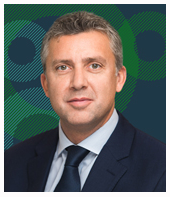The UK Structured Products Association has shifted from a reactive to a proactive approach. Although the main focus is on regulation, it is also working on a number of initiatives to increase the connectivity and engagement between the sell- and buy-sides.
In the second of a two-part interview, Zak de Mariveles (pictured), chairman of the UK Structured Products Association (UKSPA) tells SRP about how the agenda of the trade body is expanding its scope to go beyond reducing regulatory risk, and support best practices and new initiatives to educate distributors and investors.
One of the core activities for the trade body over the last few months has been to work with its members in finding new ways for manufacturers and distributors to reduce the operational burden in terms of costs and resources, according to de Mariveles.
“[We’re] looking specifically at what downstream processes make sense to standardise across the industry, providing both economies of scale by centralising such functions but also reducing regulatory risk by implementing market best practices,” says de Mariveles, adding “manufacturers’ due diligence processes with external third-party distribution networks including financial advisers, wealth managers, and private banks is an area where duplication across banks is rife and processes are often highly manual and inefficient”.
In order to support that process the UKSPA has teamed up with Delta Capita’s InSPire, the London-based services provider targeting manufacturers with new solutions to operate in the new market environment which requires greater scale, more volume, lower cost and a faster time to market.
“We are hopeful that significant progress can be made in this area over the coming months,” says de Mariveles.
Market landscape
“Part of our mission at InSPire is to bring the structured retail products industry together to create common standards and efficiencies in areas where it makes sense,” says Mark Aldous (right), managing director at InSPire. “[The] UKSPA are also interested in the same goals for their members so we are sharing ideas and potential solutions.”
The recent Retail Distribution Review (RDR) consultation suggests the market has changed significantly since it first came into effect in 2012. The number of products sold through the intermediary channel in the UK market has increased progressively since the RDR came into effect. However, the market has also seen a number of counterparties retreating from the market in the wake of the release of the FCA thematic review of products development and governance back in March 2015.
SRP data shows that sales of structured products in the UK going through the financial adviser distribution channel (62.8%) more than doubled direct sales (28.4%) in 2018.
“The UK RDR was very firmly directed to the intermediary market – the adviser-client relationship, and the desire to make advisory fees more transparent avoiding the manufacturer embedding the fees in the products themselves,” says de Mariveles. “With the need to reduce the cost of advice to address the advice gap that has emerged, we are seeing a shift towards automation and the UKSPA is focussed on digital tools that are aimed at freeing time for advisers for them to work on the key adviser tasks more efficiently.”
New tools
According to de Mariveles, one such development is the upcoming launch of a new portfolio optimiser tool, which will enable advisers “to recreate their own model portfolio of funds and analyse the potential impact of adding satellite structured products to such a portfolio”.
Launching in the coming months, this tool will provide detailed analytics that is sure to benefit advisors and investors alike and help better understand how structured products work and how can they be placed in a portfolio, says de Mariveles, noting that as the march of robo advice continues, “the structured product industry will continue to strive to provide distributors with electronic trading capabilities where possible, again helping to reduce the cost of advice and streamline processes where possible”.
“Whilst this has often been the preserve of the private banking community, advances in capabilities could see a widening to more mass market solutions as technology companies that have been successful in other countries enter the UK market.”
De Mariveles points that the UKSPA has moved on a long way from its initial formation 10 years ago. Representing the significant market share of UK, its members now work closer than ever before, he says, “striving to help reduce regulatory risk, share and support best practices and provide clarity to distributors and investors alike”.
“Structured products, as a result of Mifid 2 and Priips, are now fully aligned with all other instruments as a mainstream asset class,” says de Mariveles. “The level of engagement with the UK and the European regulator is significantly greater, and with it we believe is the trust and support of the regulators to our UK industry.
“As an association, we’re very pleased with what we have achieved over the last few years and this encourages us to continue moving forward for the benefit of issuers, distributors and end investors.”

